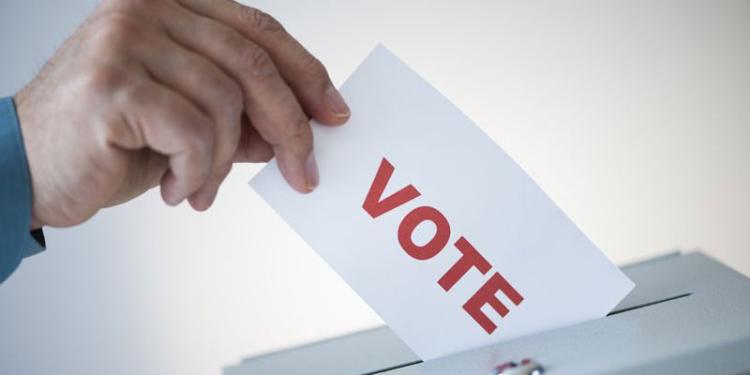The 2019 Danish General Election Betting Odds Show a Gloomy Future for the Country
Posted: April 8, 2019
Updated: April 8, 2019
-
Denmark is one of the most anti-immigration countries in the EU
-
The Social Democrats are adhering to populist ideals
-
The DPP might be joining the new government according to our 2019 Danish General Elections betting odds

Before the 17th of June, Denmark will vote to decide who will be in the next government. Our 2019 Danish General Election betting odds are expecting populism to gain a stronger voice in the Folketing. It seems that the official ascension of the Danish People’s Party is getting closer.

Ever since Kristian Thulesen Dahl became the leader of the DPP, that the party has seen a growth in popularity. In 2015, during the refugee crisis, the party became the second most-voted in the elections, right after the Social Democrats. However, the center-right formed a coalition comprising Venstre, the Conservative People’s Party and the Liberal Alliance. This way, Lars Løkke Rasmussen became the prime minister, but his government had to rely on the support of the DPP.
But if one thing that these elections proved was that an anti-immigration feeling was starting to emerge among the population. Between 2014 and 2017, Denmark accepted only 45,000 asylum seekers, while the neighbor countries accepted a lot more. Germany took in more than 1.6 million and Sweden nearly 300,000.
Now, the European elections in May will be a reflection of what to expect of the 2019 Danish General Elections. The EU Elections are expected to see a rise of the far-right. This is why that, even if at Unibet Sportsbook the odds are favoring otherwise, our betting preview shows a less bright result.
Before you keep on reading, don’t forget to check our other predictions for the Scandinavian Kingdom and place your bet on politics in Denmark.
The 2019 Danish General Election betting odds show that the DPP might form a government
Since the new government is in power that policies regarding immigration have been tighter. And the DPP’s proximity has motivated them. But more recently, unexpected parties are starting to share these views as well.
Then, favoring the party to join a coalition after the next General Elections might be a good bet on politics in Denmark. Their odds are 3.25 at Unibet Sportsbook.
The DPP has been a strong ally of the government

In 2016, Denmark introduced the controversial “jewellery law”, which allowed the authorities to confiscate valuable items from refugees. Then, in May last year, they banned the Burka, joining other EU countries to do so. And last November, the parliament approved the Ghetto Law, that made headlines in the news across the world and it was criticized by the UN’s Human Right Commissioner. Unfortunately, these critics weren’t the first neither the last.
The DPP has also recently been part of an agreement with the government regarding the settlement of unwanted immigrants in Lindholm. The remote island is used by scientists as a laboratory and a crematorium. Inger Støjberg, Minister for Immigration, Integration, and Housing, is controversial since the beginning and she has been an active voice against asylum seekers. She has strengthened the anti-immigration policies and as online sportsbook news sites in Denmark report, PM Rasmussen said
“It’s not easy to ask families to go home if they’re actually settled, but it is morally the right thing. We should not make refugees immigrants.”
In this way, the coalition’s ambitions on immigration are very close to the ones of the DPP. And the party’s proposals in the parliament have been fundamental. Recently, they introduced a bill that states it is mandatory to hand-shake with the officials once they award immigrants with Danish citizenship. As their main targets are the Muslim communities, this is just another clear provocation against them. Because, like the Jewish, they avoid touching the opposite sex.
The Social Democrats are leaning towards the right in an increasing nativist Denmark
However, lately, the Social Democrats and the DPP have been meeting in their ideas, even though they are traditionally opposites. Recently, they demanded negotiations with Rasmussen over the issue of free movement in the EU. They stated that it needs restrictions, as EU nationals seem to be taking advantage of Denmark.
Along these lines, the Social Democrats are not only adopting anti-migration positions but are also becoming increasingly Eurosceptic.
The alliance with the biggest left-wing party becomes, therefore, more of a possibility in the future. With their concerns converging, the DPP doesn’t benefit only from the support of the right faction of the parliament.
The DPP might want to just keep working close to the power

In recent years, it is possible to draw similarities between the political situation in Denmark and Austria. The Scandinavian country could be soon following Austria’s steps insofar as a far-right party could be part of the government. However, the DPP is likely to want to keep acting from “behind-the-scenes”. And unlike Austria, the Scandinavian country seems to be able to pursue its far-right stances with other parties that have less mediatic attention.
Between 2001 and 2011 the DPP supported the Liberal-Conservative government while being able to apply some of its political views. Because of the party’s influence in the cabinet, the term “VKO-government” became popular. And from we could gather so far, the party is keeping up with its prominent role.
This is why the leader Kristian Thulesen Dahl, at the time of the 2015 elections, didn’t want a coalition at any cost. Even if the fact that polls showed that 60% of the Danes wanted the DPP in the government. But another reason for the eventual outcome might have been the different views the parties have about the country’s EU membership.
As the DPP doesn’t seem to want to lose its anti-establishment position, the DPP’s odds of not being part of the first government after the general elections are 1.22 at online sportsbook sites in Denmark.












